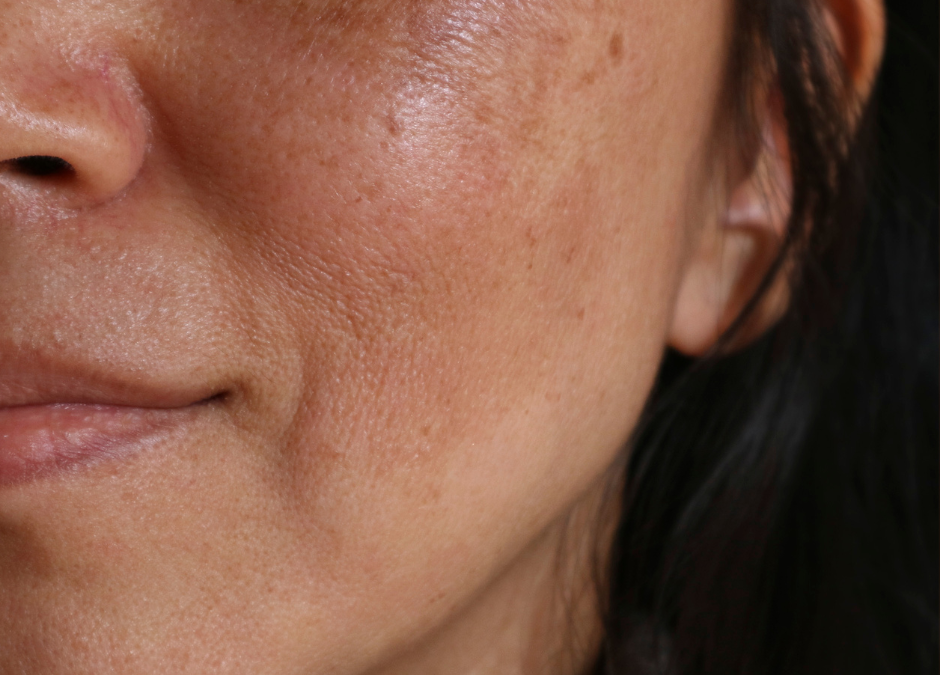Have you ever noticed dark spots appearing on your skin and wondered where they came from? Known as hyperpigmentation, these dark patches occur when there is excess production of melanin (or skin pigment).
Also referred to as age spots or sun spots, they are most common on the face, chest, arms, and hands.
what causes hyperpigmentation?
The most common cause is sun damage, and the natural aging process. Hormonal changes during menopause and pregnancy also cause hyperpigmentation.
Any type of skin irritation or inflammation can also cause it – skin cells produce extra pigment as they heal afterward. Skin conditions like acne or eczema or injuries like bites, burns, and surgical cuts can all lead to scarring and hyperpigmentation. It can also result after waxing or using harsh skin care products, as well as with certain medications.
start with prevention
Before you go out and get any products or treatments, prevent further damage from occurring by protecting your skin from the sun and keeping it covered as much as possible when you are exposed. Defense is the best offense here; more sun exposure actually makes spots darker and go deeper into the skin. If you have sensitive or reactive skin, prevent irritation by using gentler skin care products.
what to do
As for treatments, there are many over-the-counter topicals available with ingredients like antioxidants that encourage cell turnover, remove dead skin from the top layer, and fight acne. You may be familiar with many of them, like vitamin C, retinol (vitamin A), and alpha/beta hydroxy acids like glycolic or salicylic acid.
Others that help to fade spots and brighten skin include azelaic acid, kojic acid, vitamin E, niacinamide, alpha arbutin, peony and licorice root.
Hydroquinone is also well-known though controversial. It slows melanin production, but can lighten skin outside of the targeted area. At the prescription strength of 4%, there can be side effects and skin irritation.
Other dermatological treatments include lasers, microdermabrasion, and chemical peels to remove hyperpigmentation, but these can be harsh and cause irritation of their own, and are often expensive.
be informed
The best policy is to consult a dermatologist. Some products and treatments may cause irritation, dryness, or increased sensitivity to sun. Avoid mercury or steroids. Also, it can take time for dark spots to fade. Darker skin tones in particular have more melanin so it’s more of a challenge to treat.
Lastly, and perhaps most importantly, if spots change in shape, or color or develop an asymmetric border, get to a dermatologist right away to evaluate for skin cancer.
Sources: Cleveland Clinic, American Academy of Dermatology, Healthline.com













